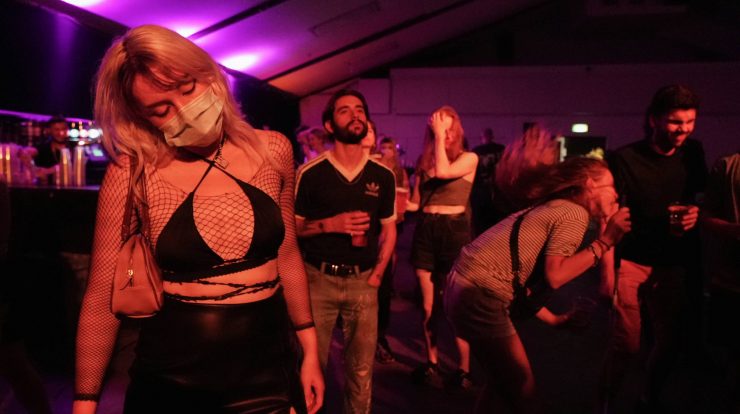
The European summer holidays are starting to heat up, but the continent is “walking on thin ice,” to use the expression chosen by German Prime Minister Angela Merkel, referring to delta-shaped expansion.
The mutated virus, which has twice the infection rate of the original Sars-Cov-2 virus, took one month to become dominant in the United Kingdom, the first European country to arrive, in April.
Then it crossed the English Channel and is today in all countries followed by the World Health Organization (WHO) in Europe.
Experts predict that the delta variant could account for 70% of new cases in Europe in August and 90% in September, making the upcoming season even bleaker.
The danger is a “fatal return in the fall,” according to regional director Hans Kluge. And he points to a combination of a more contagious variant and greater human interaction: 36 of the 53 countries tracked by the entity lifted restrictions earlier this month.
The release of tourist travel filled airports, planes, and trains, and major events occurred again. Over the past two weeks, the Cannes Film Festival has amassed 28,000 entries, not counting the thousands of pedestrians who flocked to the sidewalks hoping to see celebrities.
According to a report issued on Wednesday (21) by the World Health Organization, the number of new cases on the continent, which began to rise in early July, jumped by 21% last week, although the absolute number is much lower than the peak of the epidemic.
Hospitalizations and deaths remain under control, but Klug says this apparent calm may be an illusion.
“We’ve been here before. Last summer, cases started increasing among the youngest, and from the oldest to the oldest, resulting in a devastating loss of life in the fall and winter. We can’t make that mistake again.”
Access to vaccines is a fundamental difference between 2020 and 2021, but the percentage of Europeans who have been fully vaccinated is still far from safe: on average, only 20% have taken all recommended doses.
We’ve seen some evidence of immune flight, especially after just one dose of the vaccine. Our assessment is that this poses a significant risk in terms of community transmission, said Katie Smallwood, WHO Emergency Officer for Europe.
The current situation in the UK shows that this is not an exaggeration. The European country is the most advanced in vaccination, and the country has already given the two doses For nearly 70% of adults. However, the number of cases and the number of deaths are still on the rise since the government began lifting restrictions imposed to combat the epidemic.
Over the past four weeks, weekly diagnoses among Britons have tripled, and deaths have doubled. The United Kingdom ranked first globally in new weekly cases, with about 300,000 and a high rate of 41%, very close to Indonesia, which is going through a health crisis.
Despite this, the government kept “Freedom Day” last Monday (19), allowing practical reopenings, including nightclubs.
Last week, scientific advisers warned British Prime Minister Boris Johnson that the public health care system (NHS) was in danger of being overwhelmed by the end of August.
In scientists’ calculations, the current pace of the epidemic could go from about 800 hospitalizations per day to 2,000 by the end of next month, with up to 200 deaths per day.
As the UK presses ahead with reopening, Greece, Portugal, Spain and France have begun to reimpose restrictions.
The most visible case is that of the Netherlands, where the number of new daily cases has multiplied by seven. On Saturday, the government reimposed a curfew on cafes and bars and banned nightclubs.
Much of Portugal and the Spanish region of Catalonia They also adopted time limits to restrict travel at night.
Compulsory use of masks and a curfew have been adopted in southwestern France and Corsica, and President Emmanuel Macron has announced that it will be mandatory to provide a full certificate of vaccination to attend restaurants, cafes, cinemas, theaters and shopping centers, as well as public transport.
The new rules have led to a surge in vaccine reserves, but also a wave of street protests, and the government may have to reduce fines and ease some restrictions.
Even in Germany, where the epidemic is progressing at a much slower pace, the Ministry of Health has maintained a ban on meetings of more than a dozen people for those who have not been fully vaccinated. The government also stated that lifting restrictions at the national level will depend on progress in vaccination.
